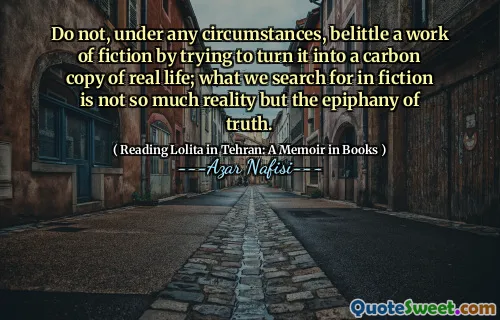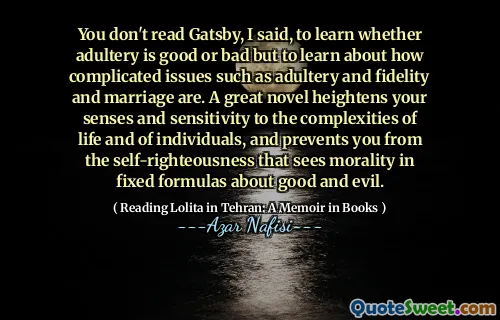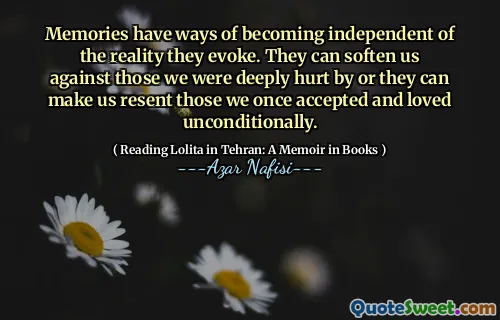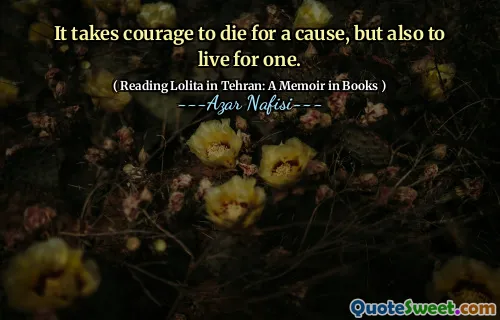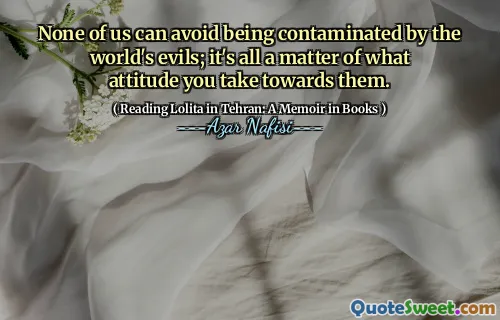
Those of us living in the Islamic Republic of Iran grasped both the tragedy and absurdity of thecruelty to which we were subjected. We had to poke fun at our own misery in order to survive.We also instinctively recognized poshlust-not just in others, but in ourselves. This was one reasonthat art and literature became so essential to our lives: they were not a luxury but a necessity.What Nabokov captured was the texture of life in a totalitarian society, where you are completelyalone in an illusory world full of false promises, where you can no longer differentiate betweenyour savior and your executioner.
📖 Azar Nafisi
In Iran, the people experienced a unique blend of tragedy and absurdity in their everyday lives under a totalitarian regime. To cope with their suffering, they often resorted to humor, using laughter as a means of survival. This environment allowed a deep self-awareness regarding their own shortcomings, which is referred to as poshlust. It became clear that literature and art were not mere luxuries; they were essential for existence and understanding of their reality.
Azar Nafisi's reflections on the work of Nabokov highlight the isolating experience in such a repressive society. It presents a world where distinguishing between true allies and oppressors becomes nearly impossible. This sense of disillusionment resonates deeply, as individuals navigate their lives amidst empty promises and oppressive conditions, seeking meaning and clarity through the power of words and artistic expression.

